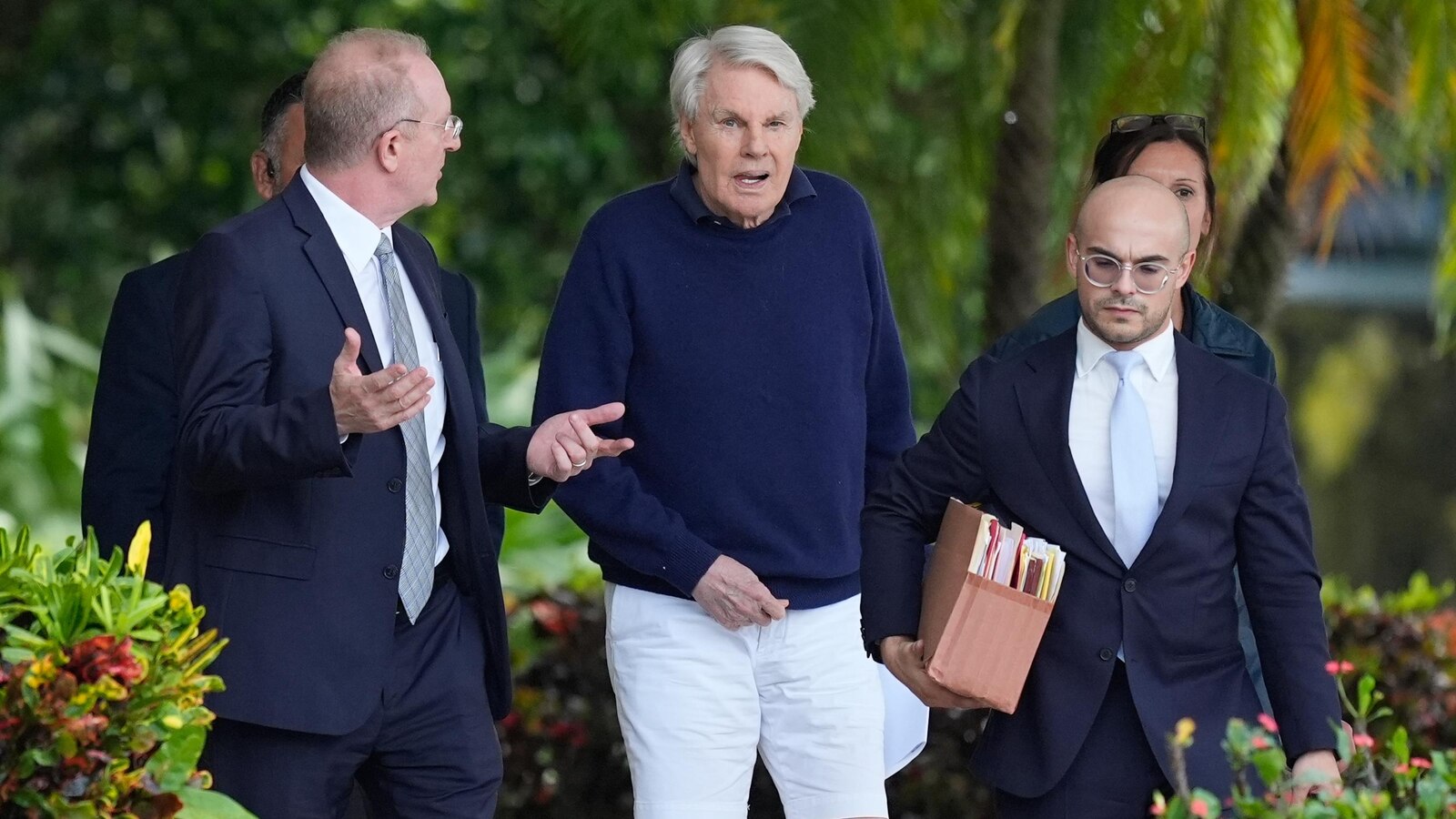NEW YORK — Former Abercrombie & Fitch CEO Mike Jeffries, his romantic partner and a third man were arrested Tuesday on charges of luring men into drug-laced, outlandish and coercive sex parties by dangling the promise of modeling for the retailer’s once-defining beefcake ads.
For almost 20 years, Jeffries, his partner Matthew Smith and their employee James Jacobson used Jeffries’ status, wealth and a web of household staffers to fulfill the couple’s sexual desires and keep it all secret, according to a federal indictment.
“Sexually exploiting vulnerable human beings is a crime. And doing so by dangling dreams of a future in fashion or modeling … is no different,” Brooklyn-based U.S. attorney Breon Peace said at a news conference. He called the case a warning “to anyone who thinks they can exploit and coerce others by using the so-called casting couch system.”
The charges echo sexual misconduct accusations made in a civil case and the media in recent years. Lawyers representing Jeffries in a federal sex trafficking lawsuit have said he “vehemently denies” those allegations.
Jeffries wore a broad smile but didn’t comment Tuesday as he left a federal courthouse in West Palm Beach, Fla., after being released on a $10 million bond. His attorney, Brian Bieber, also didn’t comment.
Smith, a dual U.S.- British citizen, was ordered detained after prosecutors raised concerns that he might flee the country.
His lawyers, Joseph Nascimento and David Raben, and Bieber said by email they would respond to the allegations in court “when appropriate.”
Jacobson didn’t address the charges during his court appearance in St. Paul, Minnesota, other than to say, “I understand what they claim,” and didn’t comment as he left the courthouse on $500,000 bond.
Jacobson has said previously that he didn’t engage in or know about any coercive, deceptive or forceful behavior. Messages seeking comment were sent to his attorney.
The three defendants are charged with sex trafficking and interstate prostitution involving 15 unnamed accusers.
The case is the latest sex crime prosecution of a prominent and wealthy man — from Sean “Diddy” Combs to Harvey Weinstein — accused of abusing his position as a star or possible star-maker, though the status of the cases and important aspects of the allegations vary. An early accuser of the late Jeffrey Epstein said he groped her during a 1997 meeting arranged as a modeling interview for the Victoria’s Secret catalog.
According to the indictment, Jacobson, Jeffries and Smith paid for dozens of men to travel to engage in sex with them and other men in New York and at hotels in England, France, Italy, Morocco and St. Barts between 2008 and 2015. The sometimes graphic indictment describes sexual bacchanals in which the recruited men were given drugs, lubricant, condoms, costumes, sex toys and, sometimes, erection-inducing penile injections that caused painful, hourslong reactions.
The men weren’t told ahead of time what sexual practices they’d be expected to engage in — indeed, some itineraries simply resembled those for models’ photo shoots — and they were required to sign non-disclosure agreements, the indictment said.
The defendants duped the men — at least one as young as 19, and some of them former Abercrombie store workers — into thinking they’d get Abercrombie modeling gigs, or that refusing to engage in the sexual encounters could harm their prospects, prosecutors said in court documents.
They said the men typically underwent “tryouts” by having sex first with Jacobson, who acted as a recruiter for his bosses.
Peace said at the news conference that prosecutors have “a lot of evidence,” including travel records, financial documents and testimony from accusers and witnesses.
Jeffries left Abercrombie & Fitch in 2014. The New Albany, Ohio-based company, which also encompasses Hollister, declined to comment on his arrest.
Prosecutors don’t allege that the company’s resources or property were used in the alleged sex scheme.
Abercrombie last year said it had hired an outside law firm to conduct an independent investigation after the BBC reported on similar allegations from a dozen men.
Founded as a hunting and outdoors goods store in 1892, Abercrombie & Fitch was a retail also-ran when Jeffries arrived a century later.
He was credited with transforming it into a darling of turn-of-the-millennium teen mall culture, known for its nouveau-preppy aesthetic and sexy marketing that featured shirtless, muscular male models. Jeffries talked openly about how the company went after attractive kids who could fit into its clothes.
Those remarks alienated customers who didn’t fit — literally or otherwise — the brand’s image, and the 2008 financial crisis and subsequent recession prompted some teens to look to less expensive “fast fashion” chains. By the time Jeffries left, the company’s sales were slumping.
A few months after his departure, the retailer announced it would stop using “sexualized” photos in marketing materials in its shops and calling store staffers “models.” The company told regional managers it wouldn’t “tolerate discrimination based on body type or physical attractiveness.”
Abercrombie has rebounded in recent years.
___
AP writer Steve Karnowski in St. Paul, Minnesota, contributed to this report.

